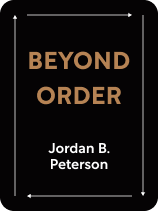

This article is an excerpt from the Shortform book guide to "Beyond Order" by Jordan Peterson. Shortform has the world's best summaries and analyses of books you should be reading.
Like this article? Sign up for a free trial here.
Do some memories haunt you? How are they holding you back?
If old memories still upset you, write them down carefully and completely. That’s Beyond Order Rule 9 from Jordan Peterson. He explains how this is an effective way to begin to process the traumas you’ve experienced.
Keep reading to learn how to heal from your past with Peterson’s method.
How to Heal From Your Past
Painful memories of past experiences are some of the realities of life. These experiences, Peterson argues, linger within us and hinder our growth—but consciously processing those painful emotions has a cathartic effect that catalyzes further growth. So, to help you learn how to heal from your past, he shares Beyond Order Rule 9: If old memories still upset you, write them down carefully and completely.
As Peterson explains, difficult or traumatic memories are important sources of feedback that we ought to learn from but too often leave unprocessed. We learn from negative feedback—burn your hand, learn not to touch hot stoves—and if a memory sticks around, that means your brain has deemed it important enough to learn from. However, when it comes to complex, emotional memories (rather than simple feedback like physical pain) we often lack the tools or skills to process them and instead end up overthinking, worrying, and avoiding them.
(Shortform note: Moreover, human memory is highly fallible, and we often unknowingly change our memories each time we recall them. This is, in part, why difficult memories can grow more painful over time—each time you ruminate over a bad breakup or a financial blunder, you can actually reinforce those painful feelings. Peterson’s suggestion to process these memories, then, means to help you learn from your past rather than suffer it ad nauseam.)
In Peterson’s view, you can effectively process old emotional wounds by revisiting them and working through them in writing. Specifically, Peterson advises that you face up to the pain of such a memory and reinterpret it from an adult perspective. To do this, look for ways to reframe the memory rationally, and try to add nuance to the way you understood it when it happened. By doing this, you’ll make sense of what happened, what went wrong, and why. Knowing that, you can derive a lesson from the memory and move past the pain.
For instance, you might’ve had a difficult childhood experience such as being bullied in school, which caused you to internalize a sense of inferiority that you still struggle with. To process your memory, try to reason through it with adult rationality. For example, you might reason that being a child, the bully was immature and didn’t understand how he hurt you. Reframing things like this, you might also reason that the bully’s meanness had nothing to do with you—and that therefore, there was never anything wrong with you. By reframing and thinking through the situation rationally, you can defuse painful emotions, learn from what really happened, and grow beyond those past emotional wounds.
(Shortform note: In contrast to Peterson’s emphasis on a rational, cognitive way of processing painful memories and emotions, Bessel van der Kolk argues in The Body Keeps the Score that trauma has a strong physiological component. That is, painful memories don’t just live in our minds—they also consist of suppressed physical sensations and emotions that end up in our bodies. Left unprocessed, they can cause psychosomatic disorders, such as migraines or chronic fatigue, that have no obvious cause. Processing your painful past is therefore important not just as a source of growth, but as a preventative health measure.)

———End of Preview———
Like what you just read? Read the rest of the world's best book summary and analysis of Jordan Peterson's "Beyond Order" at Shortform.
Here's what you'll find in our full Beyond Order summary:
- A no-nonsense guide to navigating the chaos of our difficult world
- How and why you should listen to your conscience
- How to show up for life as fully as you can






